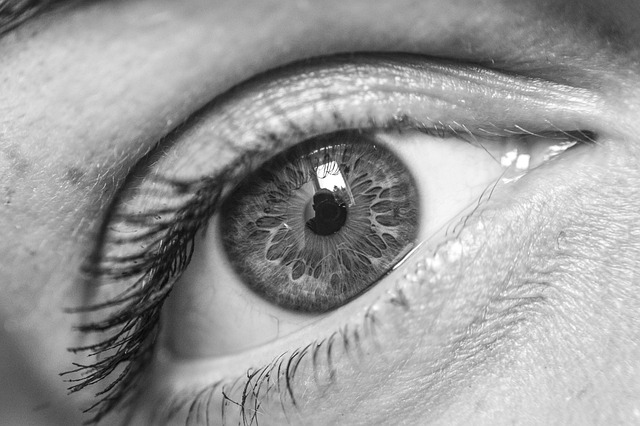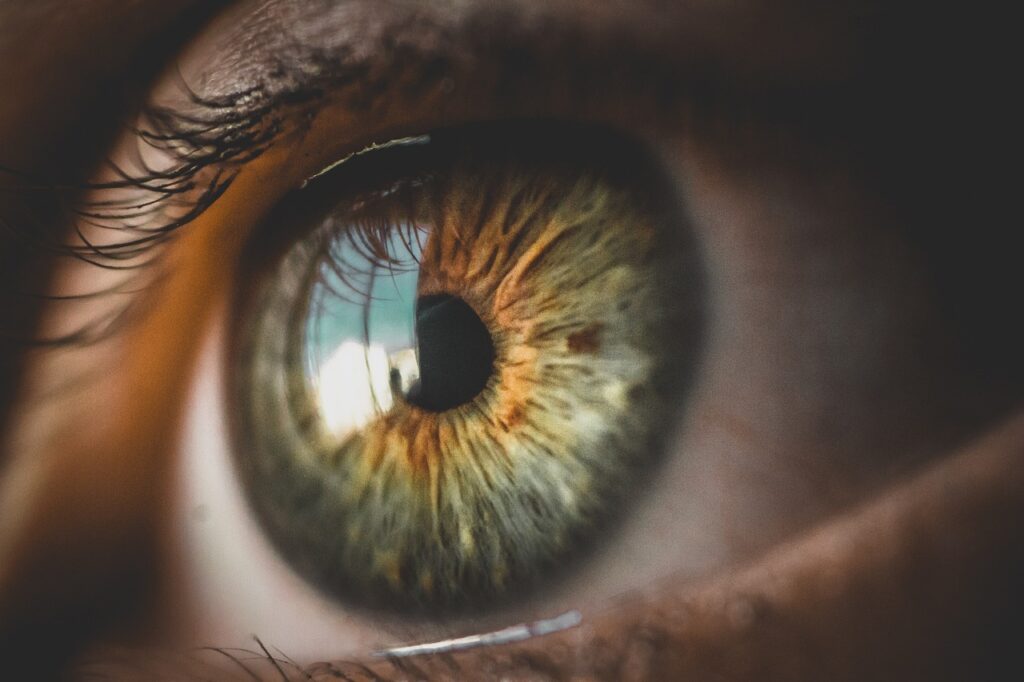Dementia is a collection of symptoms caused by various diseases that damage the brain, such as Alzheimer’s. These diseases all affect people in different ways, meaning that symptoms can often vary from one individual to another. A few common early signs of dementia include changes in mood, difficulty concentrating, and memory loss. Recently, however, researchers from New Zealand claim to have found another early sign of dementia. According to the researchers, seeing spots and experiencing blurry vision could mean that your risk of developing early-onset dementia is high.
A Newly Discovered Early Sign of Dementia

The researchers found that if the tissue at the back of a person’s eye was unusually thin, they were more likely to be diagnosed with dementia as early as their 40s. Known medically as ‘retinal thinning’, this condition results in distorted vision, including seeing lines, flashing lights, changes in colour perception, and spots. This risk increased if the individual showed signs of wide eye veins and narrow arteries. These symptoms can cause pressure and pain, and even the loss of vision in an eye. According to the researchers, these issues could stem from insufficient blood flow to the brain and eyes. This, in turn, can potentially contribute to the development of dementia.
Additionally, they stated that it may be a sign of poor bodily circulation. This is a well-documented dementia risk factor, as well as for strokes and heart attacks. Therefore, comprehensive eye examinations could be used as a method of finding out who is most at risk of developing dementia. Treatments can potentially slow down the progression of the disease as well as address many of its symptoms. However, positive outcomes rely on early diagnosis, so finding a way to discover who is at risk is vitally important. The more we know about this early sign of dementia, the better health practitioners can treat patients.
Conducted by researchers at the University of Otago, the study involved analyzing the data from the Dunedin Multidisciplinary Health and Development Study participants. This study included the health data of 900 individuals from New Zealand, recorded over a period of 45 years. The researchers combined scans of the retinas with cognitive tests, which indicated an individual’s risk of developing dementia. Health assessments were taken at birth and then again every couple of years, with the most recent assessment at age 45.
Read More: New Study Finds Common Medications Could Lower Dementia Risk
The Results of the Study

The results of the study confirmed that retinal thinning was an early sign of dementia and indicated potential cognitive decline as early as 45. They concluded that going for eye imaging examinations could prove to be a relatively cheap and simple way to assess the dementia risk of middle-aged individuals. The researchers added that such a test could only be used to indicate potential risk and would not serve as a definitive diagnosis. Another early sign of dementia is the size of your temporalis muscle. If this jaw muscle is smaller, it may indicate muscle loss overall. The condition, called sarcopenia, is often linked with the development of dementia. Around 7.5% of those afflicted with this disease in the UK also suffer from early-onset dementia.
This new study adds to the ever-growing list of potential early signs of dementia. The earlier that health practitioners pick up on these signs, the earlier treatment can begin. This significantly increases the chances of a positive outcome. The researchers revealed that poor eye blood vessel health and retinal thinning were potential signs of early-onset dementia. Based on this study, the researchers have recommended that people start taking eye imaging examinations to determine their risk. While it may be a growing health issue among the elderly, dementia is not a natural part of growing older. Therefore, it’s vital to visit your GP if you start noticing these signs, even in your 40s. If you find yourself regularly struggling to focus, find the right words in a conversation, or being confused by your surroundings, make an appointment with your doctor.
Read More: Getting the Shingles Vaccine Could Lower Dementia Risk — Here’s What the Research Says

